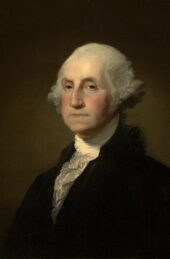“We hold these truths to be self-evident, that all men are created equal, that they are endowed by their Creator with certain unalienable Rights, that among these are Life, Liberty and the pursuit of Happiness.”
For many, these are perhaps the most famous, easily recognizable words of the Declaration of Independence. They have been endlessly recited and referenced since they were written. They’re grand. Empowering. Eloquent. As an African-American woman and descendant of persons enslaved in the United States, for me they have become most curious. Were all men truly created equal and endowed by their Creator with certain, unquestionable rights? Or just those persons whose complexions have been defined, categorized as “white?” Or worse still, were my ancestors inhuman beasts to which these words didn’t apply?
In my youth, I celebrated Independence Day with all the vigor and excitement of a wide-eyed child. The fireworks. Lip-smacking BBQ. Family. I was a product of proud Americans indulging in holiday festivities. Fast forward a few decades to a time when I was in college and my husband in graduate school, and my perspective was challenged.
One afternoon while riding the bus home from campus, one of my husband’s colleagues asked how we typically spent the day set aside to celebrate our nation’s independence. Decades have passed since then and I no longer recall my husband’s response verbatim. But it went a little something like this:
“The Declaration of Independence wasn’t written for us or our ancestors. Our ancestors went to bed as slaves on the Fourth and woke up the same way July 5, 1776. I won’t be celebrating.”
His words caused an internal shift in me. It made me stop and think. I was forced..no, I chose to examine that venerated day of celebration, as well as this magnificent historical document that shaped and defined our nation’s independence. I acknowledged the fact that many of the signers of this time-honored document returned home from the Constitutional Convention to plantations on which people were held in bondage, where they were owners of enslaved humans. There I was a grown, married woman in college confronting our founding fathers’ hypocrisy. Without excuse. With much curiosity. A bubble of innocence had burst. Stumbling upon famed abolitionist, Fredrick Douglass’s “What, to the slave, is the Fourth of July” speech further imploded that holiday for me. A nail had been hammered into its proverbial coffin after reading that searing essay.
Why do I mention any of this?

A blind eye is too expensive a luxury for me. Nor can I afford to wallow in a bewildered state of being when it comes to our nation’s history. As a Black woman writer, I’ve committed my stories to truth and authenticity. My writing will follow wherever truth (and the ancestors) lead. Even when stories take me into the weeds of uncomfortable terrain and territory. Researching My Name is Ona Judge proved one such prickly excursion, indeed.
Truthfully, I was aware that some of our nation’s leaders were slave holders. Yet, for some unknown reason George Washington escaped my notice. Could it be true? Our country’s first leader was a slave master who owned humans?
No, not the one whose biographer claimed he couldn’t tell lies when chopping down his father’s cherry trees! Really?
He was. They were. Both George and Martha Washington.
Again, bewilderment (and denial) is a luxury. I dispensed with it and accepted the facts: the Washingtons benefited from a heinous chattel system. In fact, Ona was legally the property of Mrs. Washington’s estate. I was neither callous nor dismissive when acknowledging this truth. Instead, I was smitten. Not with slaveholding. But with Ona Maria Judge, the daughter of Betty Davis, Martha Washington’s seamstress, and an English tailor, Andrew Judge, Mr. Washington’s indentured servant.
Ona Judge was remarkable. Courageous. Taken from her mother while young, she became Mrs. Washington’s seamstress and a lady’s maid, moving from Mount Vernon to New York and subsequently Philadelphia when Washington was elected president. She was described as mulatto, with black eyes, and bushy hair. Where and when? On escape notices. This young, slender woman who hadn’t been taught to read or write had the depth of spirit and mind to escape captivity. She dared to flee the most powerful persons in our country and be free. She is the one who got away. Yet, rarely does she surface in American History. But you’ll know her after today. Ona. Ona Judge was and is her name.
Suzette D. Harrison is the author of My Name is Ona Judge, published by Bookouture.







